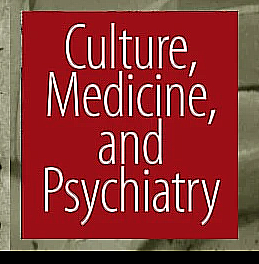In this latest interview, I discuss my postdoctoral research and the significance of collaboration.
What is your article “Medicine and Politics in the Middle East and North Africa: Transdisciplinary Approaches in Medical Humanities” about?
“I co-edited a special issue that elucidated the intellectual and transdisciplinary approaches to medicine and psychiatry in the Middle East and North Africa (MENA). The journal issue is a compilation of various papers from an interdisciplinary workshop we co-organized in Berlin while I was a Postdoctoral Fellow at the Max Planck Institute for History of Science. The two-day workshop was held in Berlin in April 2019 and generated live interventions and debates about medicine’s connection to colonialism, humanitarianism, and nationalism in the MENA region. This co-written introduction provides a theoretical framework for articulating the region’s specificities and some universal trends. We argue that the authors engage in broader discussions that not only frame disease, health, and healing in the Middle East and North Africa while also exploring how medical practices in the region dovetail with global trends.”
Tell us a little bit about yourself and your research interests.
“I am a historian of science, culture writer, and editor who explores how people navigate the unsavory and unwieldy states of health—especially subjects that discuss contagious outbreaks, medical experiments, reproductive assistance, or illness narratives. I write cultural criticism, features, book reviews, and opinion pieces. I am especially interested in human driven narratives and to think actively about those who have been excluded from history, which often means thinking actively about a wide range of sources and archives.”
What drew you to this project?
“In 2017, I graduated with a PhD in History of Science from Princeton University and my dissertation, “Plagued Bodies and Spaces’ ‘ examined the origins and progression of epidemics in North Africa during the eighteenth and nineteenth centuries. As a historian, my research examines contagion, epidemics, and toxicity by asking: what makes people sick? As a writer, I narrate how people perceive modern plagues and how they try to escape from them through critical storytelling. My writing about illness and health draws on my educational training in biology (BA), public health (MPH), and in history of science (PhD), and I invite readers to sit with the messiness of contagion, the discomforts of maladies, and the power of embodied knowledge, while also finding people’s desire to heal.”
What was one of the most interesting findings?
“Rather than look solely at illness as a given or have a universal definition of mental illness, we tried to explore how categories of disease have shifted within the Middle East and North Africa. At least at the level of merchants, goods, and materials potentially being the sites of vectors, but also being a site of control at the level of trade. These ideas and rules have evolved; they have taken on new meanings. This is primarily in the context of the age that we live in and of the rise of the nation-state, specifically, border regimes that made it even more challenging to travel between empires that were far more possible 400 years ago. How we define a disease and how we navigate trauma is also something the special issue explored.”
What are you reading, listening to, and/or watching right now? (Doesn’t have to be anthropological!)
I am drawn to creative fiction, to the power of imagination and the ways that people conjure new worlds. As such, I have been reading novels and poetry, including the works of Namwali Serpell, Sheila Heti, Tsitsi Dangarembga, Caleb Azumah Nelson, Keorapetse Kgositsile, Deborah Levy, Ada Limón, Claudia Rankine and more. These writers are teaching me to get lost in the page and to escape the world as we know it.
If there was one takeaway or action point you hope people will get from your work, what would it be?
Most of the labor for this project was done after the workshop and during the pandemic. My collaborator and I went through a pandemic, coordinated from different time zones, and underwent major life changes. We were mourning our past lives while also holding dear to our labor and our commitment to producing scholarship about medicine, disease, and psychiatry. One thing that made this project successful is our tenacity and commitment to collective projects. As such, I highly recommend that people take the time and care to work with other researchers who not only articulate their intellectual interests but who also have a mutual work ethic.
